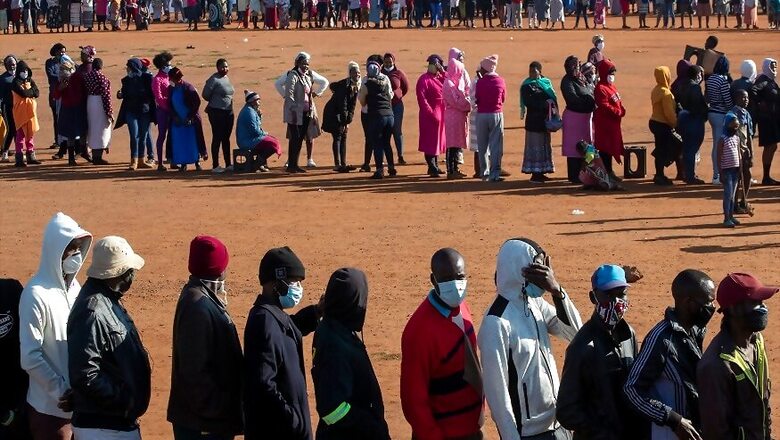
views
The National State of Disaster, which was declared in the wake of the COVID-19 pandemic, has been extended till September 15 in South Africa, President Cyril Ramaphosa has announced.
The government, however, has lowered the nationwide lockdown to Level-2 of its five-level strategic approach to deal with the pandemic, which has claimed over 11,000 lives in the country. "The move to Level-2 means that we can remove nearly all the restrictions on the resumption of economic activity across most industries," Ramaphosa said on Saturday evening and explained how the lockdown had impacted millions through poverty, hunger and unemployment.
"Economic activity will be allowed with necessary and appropriate stringent health protocols and safety precautions in place," the president said. The controversial ban on tobacco products and alcohol, which has seen a number of cases being filed in courts against the government during the lockdown, has also been lifted, subject to some restrictions on hours of sale.
South Africa, at present, has the world's fifth largest virus caseload with over 5,79,000 confirmed cases and has reported more than 11,000 deaths, according to the tally by the Johns Hopkins University. Under Level-2 of the COVID-19 strategic approach, inter-provincial travel will be permitted but international travel will remain prohibited; gatherings will be limited to 50 people including for funerals and religious events; spectators will not be allowed at sporting events; and a curfew will be there from 10 pm to 4 am every day.
Restrictions on family and social visits have been lifted, although Ramaphosa urged everyone to exercise extreme caution and undertake such visits only if necessary. He said that the current level of the lockdown could be lowered because of a decline in COVID-19 cases and the state of preparedness of hospitals to deal with the crisis.
But the president cautioned people that difficult days still lay ahead and pleaded for all to continue non-pharmaceutical interventions of wearing masks, maintaining social distancing, taking extra precautions for the elderly and those with co-morbidities, and working from home as far as possible. "We cannot become complacent or abandon the health precautions that we know we need to take. Even the slightest lapse in our alertness at this moment could lead to resurgence in infections at a rate and on a scale far greater than what we have seen so far," Ramaphosa said.
"We have seen this happen in other countries, where stringent restrictions have had to be re-imposed at short notice as the rate of infection rises after relaxation," he said. Ramaphosa said that it is now known that a large proportion of people who are infected with the virus do not show symptoms and may not even know that they are infected.
"I could be infected. As could you," he said. With this in mind, each one of us should consider ourselves as potentially infected with the virus and continue to behave responsibly so that we do not pass it on to others, the president said.
Over the last three weeks, the number of new confirmed cases in South Africa has dropped from a peak of over 12,000 a day to an average over the past week of around 5,000 a day. The recovery rate has almost increased from 48 per cent to 80 per cent.
"The further easing of restrictions presents us with the greatest opportunity since the start of the pandemic to breathe life into our struggling economy. Even as we open up economic activity, it will take a long time for industries and businesses to recover, and there is much work still to be done, Ramaphosa said.
He stated that the government, labour, business and community organisations were working together on an urgent economic recovery programme that places the protection and creation of employment at its centre. "We will use this moment not only to return South Africa to where it was before, but to transform our country to a more equal, more just and more dynamic economy. Difficult days indeed lie ahead. However, we have proven our resilience as a nation over the past five months," Ramaphosa said.
"The task before us now is to apply the same energies with which we have battled this pandemic to the economic recovery effort," he said.















Comments
0 comment